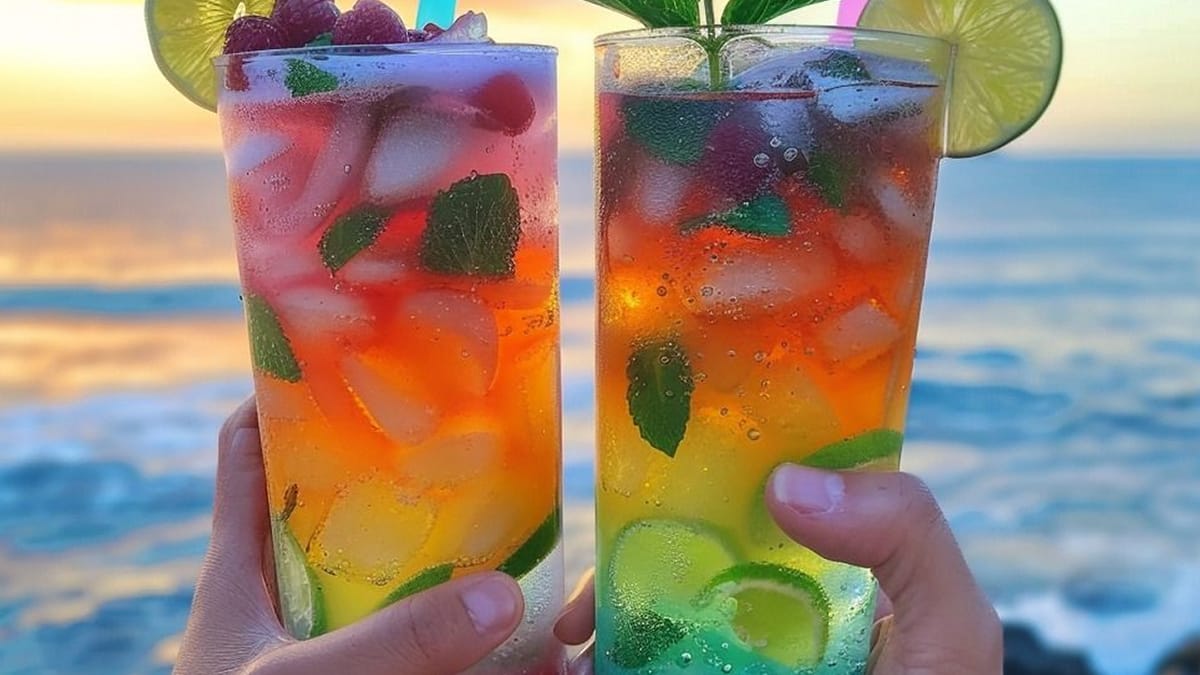Why One Everyday Drink Could Be Draining Your Vitality and Impacting Testosterone
For men over 30, staying sharp, energetic, and confident isn’t just about what you eat—it’s also about what you drink. But what if your familiar beverage is secretly undermining your energy and libido? Many men overlook this silent saboteur, assuming it’s harmless. Yet science and real-life experiences prove otherwise.
Understand this hidden issue, recognize the warning signs, and discover actionable steps to reclaim your vitality.
The Everyday Drink That May Destroy Your Mojo
Whether it’s that morning energy drink, flavored coffee, or diet soda, these beverages often contain artificial sweeteners or excessive alcohol disguised as refreshment. Though marketed as “boosters” or “healthy,” they may harm metabolism, disrupt hormone balance, and curtail sexual drive in men over 30.
How It Hits Men Over 30 Harder
Testosterone naturally declines with age. Add lifestyle stressors and poor drink choices, and the decline accelerates. Excessive alcohol, energy drinks, and artificial sweeteners can interfere with testosterone production and increase cortisol, leading to fatigue, low libido, and reduced muscle performance.
Scientific Evidence They Don’t Want You to Miss
Heavy drinking (more than eight standard drinks per week) has been linked to significantly higher risk of low testosterone—up to 4.4 times more in “flushers” compared to non-drinkers Male Excel+1Wiley Online Library+1PMC+1kjfm.or.kr+1. Studies highlight chronic alcohol’s inhibition of the gonadal axis and testosterone biosynthesis Wiley Online Library.
Meanwhile, artificial sweeteners like sucralose and aspartame have been shown to harm male reproductive health in animal models, from reduced sperm quality to hormonal disruption PMCMDPINew York PostMale Excel.
Energy drinks add another layer of risk—caffeine and taurine clusters cause oxidative stress and inflammation, impacting the testicular system over time PMC+2MDPI+2frontiersin.org+2.
Real Stories, Real Impact
Jason, 35, swapped his daily energy drink for green tea and noticed energy spikes and revived libido in just two weeks. Mike, 42, cut out flavored diet sodas and regained gym drive and sexual confidence within a month. These shifts weren’t placebo—they were real changes based on better hydration and cleaner drinks.
Key Signs Your Drink Is Undermining You
Persistent mid‑afternoon fatigue despite good sleep
Decreased libido or performance issues
Brain fog or low motivation
Unexpected weight gain or reduced stamina
Poor recovery after exercise
Power Hits: How This Drink Kills Energy and Libido
Alcohol slows down testosterone production and injects cortisol stress responses en.wikipedia.org+1jhpn.biomedcentral.com+1pubs.acs.org+3academic.oup.com+3PMC+3
Artificial sweeteners may elevate oxidative stress and damage Leydig cells, lowering testosterone Male ExcelPMCMDPINew York Post
Energy drinks overload the nervous and endocrine systems, promoting fatigue and hormonal instability MDPI
Metabolism and Hormone Disruption Cycle
Lowered testosterone reduces muscle mass and metabolic rate. Increased fatigue means less activity and recovery. Cravings rise. Hormonal rhythm goes haywire. Performance drops. Libido fades. Without change, this cycle intensifies.
Smart Swaps That Restore Energy and Drive
Water with lemon or mineral water
Unsweetened green tea or matcha
Black coffee in moderation (under 400 mg caffeine/day) en.wikipedia.org
Simple homemade electrolyte drinks (no artificial sweeteners)
Nutrient-rich tonics like ginger‑turmeric herbal blends
Simple Daily Actions That Make a Difference
Replace one suspect drink per week
Drink before and after workouts to support recovery
Prioritize sleep and stress management
Exercise resistance training to boost testosterone naturally
Track mood, libido, and energy—adjust within days
Final Thoughts: Reclaim Your Energy and Sexual Vitality
Awareness is your fuel: know what you consume
Replace drinks with clean, simple hydration
Give your body a 21‑day recovery window to reset
Restore testosterone naturally through lifestyle
Consistency wins: small daily swaps add up
FAQ
What drink is most harmful to energy and libido in men over 30
Energy drinks, flavored diet sodas, and regular alcohol consumption (especially binges) can severely impair testosterone, raise cortisol, and hollow out stamina.
Can artificial sweeteners really lower testosterone
Animal studies suggest sucralose and aspartame may damage sperm production and disrupt male hormones. These findings warrant caution, especially with high intake frontiersin.org+1en.wikipedia.org+1.
Is moderate coffee consumption okay for libido
Yes. Moderate amounts appear neutral or slightly positive for erectile function and energy, especially when paired with exercise. But avoid excess caffeine as it can backfire verywellhealth.comjhpn.biomedcentral.com.
How long till energy and libido improve after quitting bad drinks
Many men report marked improvement within 2 to 4 weeks after detoxing suspect beverages.
Are low‑calorie sweet drinks safer
Not necessarily. Fake zero‑calorie sweeteners can still impact metabolism and hormones. Whole‑food hydration choices are superior.
What should I drink instead
Water, herbal teas, black coffee, green tea, clean electrolyte blends, and functional herbal tonics.
Top 5 Product Types to Support Recovery
Glass or stainless steel water bottles
Unsweetened herbal and matcha tea blends
Natural electrolyte powders without artificial sweeteners
Resistance‑band kits or home workout gear
Supplements supporting male vitality (e.g. zinc, magnesium, coenzyme Q10)
Tips to Avoid the Trick
Always scan ingredient labels carefully
Avoid products with sucralose, aspartame, taurine, or hidden additives
Rotate your hydration options to avoid tolerance
Don’t rely on “diet” drinks to fix fatigue
Listen to your body—low libido is not normal
Motivational Quote
“Take care of your body. It’s the only place you have to live.” – Jim Rohn
References
This article was informed by insights and studies available on:
www.health.harvard.edu, www.menshealth.com, www.healthline.com/fitness/exercise, www.acefitness.org
Disclaimer
This content is for informational and educational purposes only. It is not intended to replace professional medical advice, diagnosis, or treatment. Always consult your physician before starting any exercise program.

